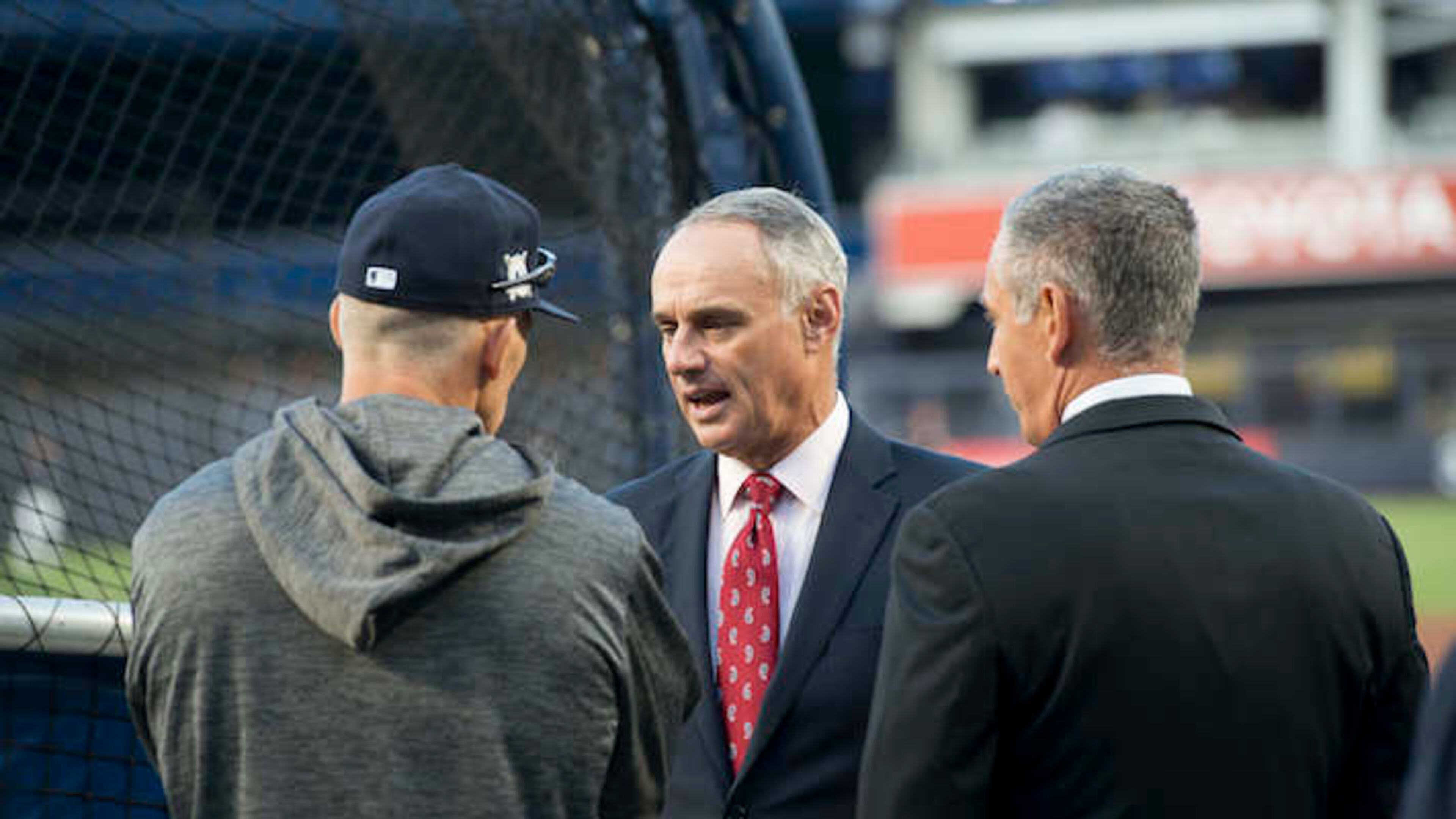MLB has more to blame than bad weather for major attendance drop

Major League Baseball experienced an expected and understandable hit at the box office in 1995 following the players' strike and cancellation of the World Series the previous year, suffering a 6.7 percent decline in average attendance.
In more than two decades thereafter, MLB hasn't faced an attendance falloff of that magnitude again. Until now.
League-wide figures show that attendance was down 6.6 percent through the end of last week — practically identical to the extraordinary circumstances of '95. And if you don't think the powers that be are highly concerned about the potential loss in revenue and fan interest in more than half of its markets — or that the game appears headed for its lowest overall attendance numbers since 2003 — I have a Shea Bridge to sell you.
MLB Commissioner Rob Manfred suggested recently that poor weather — resulting in 36 postponements already — "has been the overriding factor," while acknowledging at the owners' meetings last week "we are concerned that there's something to it more than weather."
The commish also has stated that "negative publicity" surrounding several teams who have gutted their rosters in rebuilding scenarios also has "played a part" in the sinking numbers of paying customers in those cities. And that is the far more complex, pressing and disturbing issue that needs to be addressed more than simply the abnormally cold and rainy weather, particularly in the Northeast, we dealt with in April and through much of May.
"I think it's clear that publicity suggesting a lack of competitiveness by a team is really problematic in terms of attendance," Manfred allowed.
Sure, some teams are largely impervious to such box-office variances: perennial big-spenders such as the Dodgers, the Yankees, the Cardinals and a few others regularly zoom above three million spectators coming through the gates year in and year out.
The Yankees' attendance numbers, in fact, actually are slightly up following last year's return to the playoffs — from 39,835 per game at the Stadium in 2017 to 41,968 through 37 home dates so far this year. Even the Mets have pretty much held steady from last year's disaster to this season's crash following a hot start, from a 14th-ranked average of 30,757 to a No. 12 showing now at 30,723.
Still, this year could mark the first time since 2003 that the league average drops below 30,000 per game. And based on yearly league-wide attendance rates and an average price of $76 per ticket, Fortune estimates MLB clubs will earn $355 million less on tickets sales alone this season.
Speaking of revenue, MLB still hasn't set a date for the grievance the Players' Association filed in February accusing Miami, Oakland, Pittsburgh and Tampa Bay of failing to appropriately reinvest their revenue-sharing dollars.
On the field, there never has been such a disparity in the competitive balance MLB always claims to be seeking, with four teams (the Yankees, Red Sox, Astros and Mariners) currently on pace to win more than 100 games, and four (the Orioles, White Sox, Royals and Reds) on pace to lose in the triple digits, with Derek Jeter's gutted Marlins (98-loss pace through Monday) not far behind. There have never been as many as five teams to lose 100 games in a single season, by the way.
And that doesn't even factor in baseball's ongoing issues with pace of play, the proliferation of strikeouts and the increased cost of taking a family of four to the ballpark, now well over $200 on average.
In all, 18 of the 30 major-league teams have posted a drop in home attendance this season, with 10 teams already falling by at least 10 percent. Miami leads the way at more than a 60 percent downward spike to a league low of barely 10,000 per game. Toronto, Cleveland, Kansas City, Detroit and Baltimore also have seen their average attendance tumble by at least 30 percent.
"We're hoping that we rebound here in the second half," Manfred said at the owner's meetings in New York last week. "We're having a great season in terms of races and competitive teams."
Not to rain on MLB's "great season," but the weather has been the least of the league's problems at the gate.

